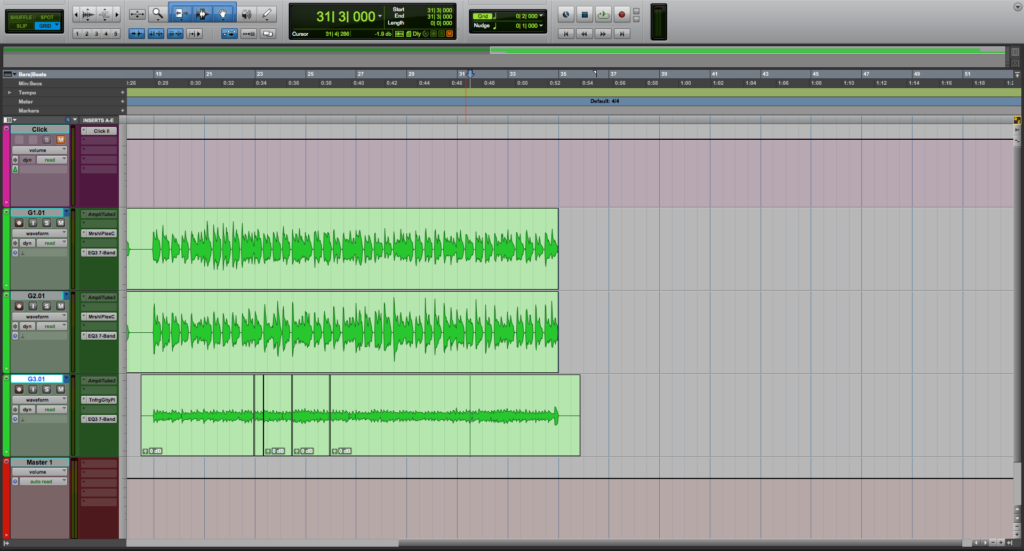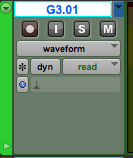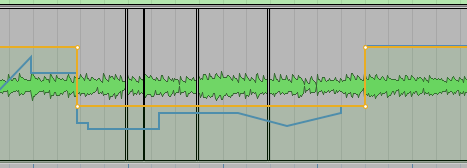Volume Trim Automation in Pro Tools
This blog is part of our new series of tutorials based on Avid’s flagship Digital Audio Workstation, Pro Tools.
Want to learn how to use Avid Pro Tools in real time, with a professional digital audio trainer? It’s faster than blogs, videos, or tutorials. Call OBEDIA for one on one training for Avid Pro Tools and all digital audio hardware and software. Mention this blog to get 15 bonus minutes with your signup! Call 615-933-6775 and dial 1, or visit our website to get started.
Need a Pro Audio laptop or Desktop PC to run Avid Pro Tools software and all of its features at its best?
Check out our pro audio PCs at PCAudioLabs.
Getting started with how to apply Volume Trim Automation in Pro Tools
Pro Tools is a software that lets you produce, record, edit and mix audio as well as MIDI performances.
During the mixing stage of a song, it is crucial to apply automation procedures when needed. Automation lets us “program” certain parameters of the software such as the volume (fader position), pan position, mutes or insert parameters so that they change automatically on certain parts of the song in order to create aesthetic effects.
Automation can be written or recorded so that the software can later play it back exactly as it was originally stored.
Volume Automation simply programs changes in the fader position that will affect the volume of the desired track.
Now, once we have applied volume automation and finished the mix, we can send it to a producer, record label, or the client.
After they listen, they might ask for revisions such as “make vocals on the chorus 3 dB louder”.
That is when we use Volume Trim automation, which is just a secondary automation layer that is applied on top of the original Volume Automation.
This lets us modify the overall volume automation curve without changing its original “shape” by boosting or reducing its volume during the desired sections.
Today, we will explore how to apply Volume Trim Automation in ProTools.
-
Create or open an existing Pro Tools session:
Make sure the session contains at least one track:
2. Make sure “Read” Mode is enabled on the track you will apply automation:
3. Locate the Track View Selector:
4. Click on “Volume Trim”:
The track will now display the volume automation line as well as the volume trim automation line as:
The blue line represents the volume automation line. The yellow line represents the volume trim automation line.
Now we must create two automation points so that we can modify the volume trim automation curve (yellow line).
5. Create two automation points by holding control+click (Windows) or Command+click (macOS) on the desired locations:
6. Click and drag the volume trim automation curve between the automation points in order to raise or reduce the volume on that range:
It is easy to see how we have reduced the volume on that area using the volume trim automation line.
You can now press play and the fader will automatically jump down during that area of the song, lowering the volume of the track in a uniform way, but maintaining the original automation curve.
This is the simplest procedure you must follow in order to apply Volume Trim Automation in Pro Tools.
At this point, we have successfully explained how to apply Volume Trim Automation in Pro Tools.
Using Avid Pro Tools software to produce music would be ideal with one of our professionally designed PCAudioLabs Systems due our high-performance specifications in order to work with any of the Digital Audio Workstations supported. If you would like to order one of our PCAudioLabs computers, please call us at 615-933-6775 or click this link for our website.






